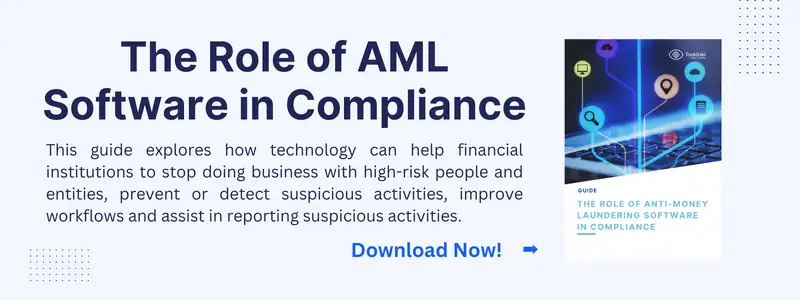Money Laundering in Nigeria: Impact and Efforts to Combat It
Money laundering is a pervasive crime that poses significant challenges to the Nigerian economy and society. This illicit activity involves disguising the proceeds of illegal activities and making them appear legitimate. In Nigeria, money launderingis a serious problem, with various types of offences, including drug trafficking, corruption, embezzlement, and terrorist financing. The consequences of money laundering are far-reaching, impacting the economy, financial markets, and social and political stability.
In this comprehensive guide, we will delve into the nature of money laundering in Nigeria, its impact on the country, the regulatory framework in place to combat it, and the initiatives and efforts taken to prevent and prosecute money laundering offences.
Understanding Money Laundering in Nigeria
Money laundering is a complex process that involves three main stages: placement, layering, and integration. Criminals employ various methods to launder money in Nigeria, such as currency smuggling, shell companies, false invoicing, structuring, and gambling. These illicit activities undermine the integrity of the financial system and contribute to increased crime, violence, and corruption.
Types of Money Laundering Offenses in Nigeria
Money laundering offences in Nigeria encompass a wide range of illegal activities. Some of the most common offences include:
- Drug Trafficking: Drug cartels engage in money laundering to conceal the proceeds from their illicit drug trade.
- Corruption: Public officials involved in corrupt practices often launder the proceeds of their illicit activities.
- Embezzlement: Individuals in positions of power misappropriate funds and launder the stolen money to make it appear legitimate.
- Terrorist Financing: Terrorist organizations use money laundering techniques to disguise the source of their funding.
Methods of Money Laundering in Nigeria
Money launderers in Nigeria employ various methods to hide the origins of their ill-gotten gains. These methods include:
- Currency Smuggling: Criminals transport large sums of cash across borders to evade detection.
- Shell Companies: Illicit funds are funnelled through fictitious companies to make them appear as legitimate business transactions.
- False Invoicing: Criminals manipulate invoices and trade documents to disguise the movement of funds.
- Structuring: Individuals make multiple deposits under the threshold limit to avoid suspicion and detection.
- Gambling: Criminals utilize casinos and other forms of gambling to legitimize their illicit funds.
-1.png?width=700&height=1008&name=Nigeria-Know%20Your%20Country%20(800%20%C3%97%201500%20px)-1.png)
Impact of Money Laundering on Nigeria
Money laundering severely affects the Nigerian economy, society, and governance. These negative effects include economic distortion, loss of control over economic policy, revenue loss, and undermining the integrity of financial markets. Additionally, money laundering fuels crime and corruption, further eroding social and political stability.
Economic Consequences
The economic implications of money laundering in Nigeria are significant. Illicit funds distort economic indicators, making it challenging for policymakers to implement effective economic policies. Money laundering also leads to a loss of revenue for the government, as tax evasion and illicit financial flows deprive the country of much-needed resources.
Furthermore, money laundering undermines the integrity of financial markets, making them vulnerable to manipulation and fraud. This undermines investor confidence, stifles economic growth, and hampers foreign direct investment.
Social and Political Consequences
Money laundering in Nigeria has far-reaching social and political consequences. The illicit activities associated with money laundering, such as drug trafficking and terrorist financing, contribute to increased crime rates and violence. This poses a significant threat to public safety and security.
Moreover, the success of money laundering activities erodes the integrity of society and undermines democracy and the rule of law. Organized crime infiltrates financial institutions, gains control over large sectors of the economy, and creates an environment of unfair competition. These factors perpetuate social inequality and hinder the country's development.
Cases of Money Laundering in Nigeria
Numerous high-profile cases of money laundering have emerged in Nigeria over the years. These cases highlight the extent of the problem and the need for robust measures to combat money laundering effectively.
- In 2022, a Nigerian governor was involved in a case of fraud and misuse of public funds.
- In 2021, Nigerian influencer Ramon Abbas, also known as Hushpuppi, pleaded guilty to money laundering in a US court. He was known for posting photos of his lavish lifestyle on Instagram and was considered one of the "most high-profile money launderers in the world
- In a 2017 case, a man named Alade Atoyebi and one other person were arraigned before the trial Court on a 54-count charge wherein they were accused of the offence of money laundering.
Punishment for Money Laundering in Nigeria
To deter money laundering offences, Nigeria has enacted stringent laws and regulations, imposing severe penalties on offenders. The Nigerian government recognizes the need for a robust legal framework to combat money laundering effectively and protect the integrity of the financial system.
Money Laundering (Prohibition) Act
The Money Laundering (Prohibition) Act criminalizes money laundering offenses in Nigeria. Offenders face significant penalties, including imprisonment, fines, and the seizure of assets. The Act also provides for the forfeiture of proceeds derived from money laundering activities.
Anti-Money Laundering and Combating the Financing of Terrorism (AML/CFT) Regulations
The Anti-Money Laundering and Combating the Financing of Terrorism (AML/CFT) Regulations guide financial institutions and other reporting entities on their obligations to prevent and detect money laundering activities. These regulations outline requirements for customer due diligence, reporting obligations, and recordkeeping. Non-compliance with these regulations can result in legal and regulatory consequences for financial institutions, including reputational damage and loss of operating licenses.
Initiatives and Efforts to Combat Money Laundering in Nigeria
Recognizing the seriousness of the money laundering problem, Nigeria has implemented various initiatives and efforts to combat money laundering effectively. These initiatives involve collaboration between regulatory agencies, financial institutions, and international bodies.
Regulatory Agencies Responsible for Combating Money Laundering
Several regulatory agencies in Nigeria are responsible for implementing anti-money laundering measures and enforcing compliance. These agencies include:
- Central Bank of Nigeria (CBN): The CBN plays a vital role in implementing anti-money laundering measures in the financial sector. The bank issues guidelines and regulations for financial institutions operating in Nigeria, ensuring compliance with anti-money laundering requirements.
- Economic and Financial Crimes Commission (EFCC): The EFCC is Nigeria's primary agency responsible for investigating and prosecuting money laundering offenses. The commission has the authority to arrest and prosecute individuals and entities suspected of engaging in money laundering activities.
- Nigerian Financial Intelligence Unit (NFIU): The NFIU receives, analyzes, and disseminates financial intelligence to relevant law enforcement agencies. The unit collaborates with other agencies to combat money laundering activities effectively.
Legal and Regulatory Framework for Anti-Money Laundering in Nigeria
Nigeria has established a comprehensive legal and regulatory framework to combat money laundering. The framework includes laws, regulations, and guidelines that financial institutions and other reporting entities must adhere to. Key elements of the framework include:
- Money Laundering (Prohibition) Act: This Act criminalizes money laundering offences and prescribes penalties for offenders.
- Terrorism (Prevention) Act: This Act provides for the prevention, detection, and punishment of terrorist financing activities.
- Anti-Money Laundering and Combating the Financing of Terrorism (AML/CFT) Regulations: These regulations guide financial institutions on their obligations to prevent and detect money laundering and terrorist financing. They outline requirements for customer due diligence, reporting obligations, and recordkeeping.
- Guidelines on National Risk Assessment for AML/CFT: These guidelines assist regulators, financial institutions, and other stakeholders in conducting risk assessments to identify and assess the risks of money laundering and terrorist financing in Nigeria.
How Tookitaki Can Help Financial Institutions in Nigeria
Tookitaki is revolutionizing financial crime detection and prevention for banks and fintechs through its Anti-Money Laundering Suite (AMLS) and Anti-Financial Crime (AFC) Ecosystem. Our unique community-based approach addresses the silos used by criminals to bypass traditional solutions, resulting in a sustainable AML program with holistic risk coverage, sharper detection, and fewer false alerts.
Tooktiaki’s approach starts with its AFC ecosystem, a community-based platform to share information and best practices in the fight against financial crime. The AFC ecosystem is powered through our Typology Repository, a live database of money laundering techniques and schemes called typologies. These typologies are contributed by financial institutions, regulatory bodies, risk consultants, etc, around the world by sharing their experiences and knowledge of money laundering.
The AMLS, on the other hand, is a software solution deployed at financial institutions, which collaborates with the AFC Ecosystem through federated machine learning. The AMLS extracts the new typologies from the AFC Ecosystem and executes them at the customers' end, ensuring that their AML programs stay ahead of the curve.
The AMLS includes Transaction Monitoring, Smart Screening, Customer Risk Scoring, and Case Manager modules. These modules work together to provide a comprehensive compliance solution that covers all aspects of AML, including detection, investigation, and reporting.
Leveraging Tookitaki's Solutions for Effective AML Programs
The regulatory framework for combating money laundering in Nigeria is comprehensive, and financial institutions must comply with strict guidelines and regulations. Best practices for financial institutions include conducting risk assessments, customer due diligence, transaction monitoring, and regular training of employees on AML compliance. Technology plays a crucial role in AML programs, with innovative solutions such as Tookitaki’s AML suite offering advanced machine learning, data analytics, and automation capabilities.
By adopting Tookitaki’s solutions, financial institutions can significantly improve their AML compliance capabilities and help protect Nigeria's financial system from the harmful effects of money laundering. If you want to know more about Tookitaki’s cutting-edge AML solutions, please book a demo with us.
Anti-Financial Crime Compliance with Tookitaki?





